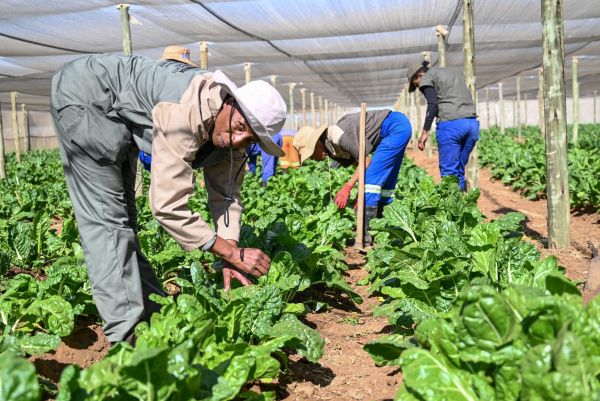In South Africa, over 20% of South African households have inadequate or severely inadequate access to food, a critical concern in a country where an estimated 12.6 million tonnes of food are wasted annually. This stark reality underscores the urgent need for comprehensive solutions to achieve food security, which relies on both access to food and the means to obtain it
“Every small, informed action, whether it’s purchasing seasonal produce from small-scale farmers or reducing household food waste, contributes to a food-secure future,” says Dr Thuli Tabudi, The SPAR Group Socio-Development and Transformation Executive.
However, Dr Tabudi emphasizes that retailers are vital links in the food supply chain. Through their operations, they must play an active role in reshaping food security and ensuring consistent access to nutritious food.
This commitment is exemplified by SPAR’s long-established Rural Hub Programme; an initiative rooted in promoting local food security and rural economic empowerment. Launched to enhance food production in under-resourced rural communities, the SPAR Rural Hub Programme connects small-scale farmers directly to SPAR’s distribution network, providing them with a reliable market for their produce.
The programme’s mission is to build an inclusive and sustainable food system. It offers technical support to small-scale farmers to increase crop volumes and quality, allowing surplus produce to be directed to urban fresh produce markets. This ensures that farmers are not limited to oversupplied local markets and can secure fair and realistic prices for their harvests. In turn, this creates opportunities for increased production and revitalised economic activity in agriculturally dominant regions.
The key to the Rural Hub’s success lies in empowering participating farmers to grow commercial-quality crops at scale, often cultivated under protective net houses. “SPAR has financed all operational costs and capital assets necessary to transform the farms involved in the programme,” explains Dr Tabudi. “The spin-off is employment creation and the generation of new local income streams, which help stimulate the broader regional economy,” she adds.
SPAR has become the primary buyer for produce from our Rural Hub farmers. This is a significant milestone for both our organisation and the hardworking farmers we support. As part of this partnership, our Distribution Centres have committed to purchasing 80% of their daily demand for products grown by the Rural Hub farmers from the Rural Hub. This collaboration not only strengthens our supply chain but also ensures that we continue to provide fresh, high-quality produce to our customers. These products are sold under SPAR’s in-house Freshline and Country Value labels. Additional customers include other aggregators, packers, processors and the fresh produce markets.
In 2024, the Rural Hub model created over 160 jobs at farm level, with an additional 47 individuals working in the packhouse and offering technical services to farmers. In 2024, the programme was further strengthened when the Kagiso Trust, through its Tyala Impact Fund, awarded R3 million to support the development of ten selected farmers within the Rural Hub.
One inspiring success story is that of Leydah Sekgobela, a small-scale farmer from Limpopo. With SPAR’s support, she has transformed her operation into a successful commercial farm employing 29 people (22 women) from her community.
“Our Rural Hub is not just about food,” says Dr Tabudi. “It’s about dignity, opportunity, and creating a more sustainable future for everyone by promoting food security.”
Addressing the role individuals can play in reducing hunger and food waste, Dr Tabudi highlights the power of small daily actions. “Consumers can make a difference by buying local. Choosing South African-grown produce supports local farmers and producers, strengthens the agricultural economy, and reduces food miles, ensuring that food travels a shorter distance from farm to table. This not only lowers environmental impact but also boosts job creation in the sector.”
Other key actions include shopping smartly, storing food properly to reduce spoilage, and composting organic waste such as vegetable peels and coffee grounds to enrich the soil and decrease landfill waste.
“SPAR is working to make small farms more sustainable by helping farmers increase their output and ensuring their products reach larger markets. These efforts are supported by our network of independent store owners, who play a crucial role in donating surplus stock to deserving local causes,” says Dr Tabudi.
“Every plate counts in the fight against food waste. By planning meals, storing leftovers wisely, and sharing excess with those in need, each of us can make a meaningful difference. Together, we can build a more sustainable future—one meal at a time.”








